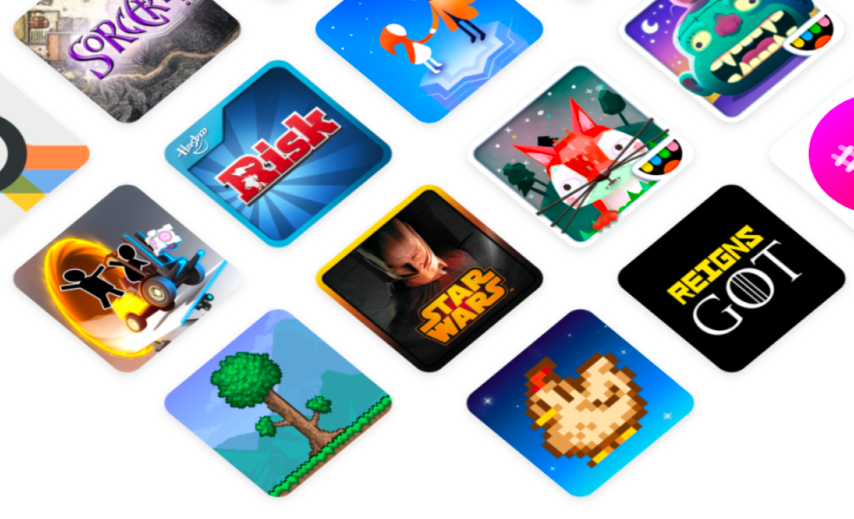It is difficult to enumerate all trends and technologies that are shaping the modern market but one of them stands out – mobile phones. And it is easy to explain because users need quick access to information and services, and don’t want to stay at home to play their favourite games. Not surprising that so many video game developers their native applications. They make all the difference and below we will tell you how.
1. Faster performance
The first reason why apps are superior to websites is speed. Even the most optimized and responsive smartphone-based website loses speed to applications. And this is a big issue because we are a generation that needs instant results and even the slightest lag can make us go to competitors. Especially, when not only the playtime but online payments need to be completed in a few seconds. Such punters would be glad to find out that CasinoHEX approves these gaming platforms that pay out fast and recommends them for the further engagement.
Applications store information locally so can retrieve the necessary content immediately. They don’t have to get the data from servers that may be located in other parts of the world. Plus, mobile app frameworks are more advanced and faster compared to website scripts. This means that they actually make the online gaming industry faster.
2. Personalized experience
The second benefit is the personalized approach that we all want. Mobile apps are able to analyze our behaviours, location, and decisions to provide us with the most tailored experiences ever. They offer goods and services that we really need and don’t overload us with unnecessary information. Mobile apps also have filters, so users can search for the necessary data and elements in a blink of an eye. For the gaming industry, it means that players receive recommendations and updates that they need and enjoy. It is always great to get noticed, right?
3. Exclusive rewards
There is a big number of tools that businesses use to reward new and existing customers. The most popular in-app rewards include points, badges, and leaderboards. Players can also come across hidden scenes and missions, bonuses for watching ads, and so on. It is much easier to add tailored rewards to a mobile app than to a website thanks to AI and advanced algorithms that study human needs and behaviours.
4. Instant notifications
One of the biggest drawbacks of living in a fast-moving world is the fear of missing something. And this problem is partially solved by mobile applications that send notifications that remind you of time-limited offers, news, prize giveaways, and much more. Notifications help to engage customers and keep them updated about the product, upcoming sales, and new launches. Such things are impossible at browser-based games and stores, so users may miss interesting news and events.
5. Unique services
As Grace Tennet, NZ CasinoHEX content manager likes to say, to keep the business alive it is necessary to be one step ahead of the competitors. And the only way to do it is to offer services that others don’t have. Mobile applications can help with this. And it won’t cost much because businesses just need to add several features to existing software. The most popular services that make the difference are personalized push notifications, click-to-call buttons, and analytics.
6. Better engagement
Finally, online gaming that implements mobile applications offers higher engagement levels that users love and value. Even a few years ago, reaching potential users was rather time and financially-consuming because businesses had to invest in advertising and creating new websites. But mobile apps have significantly simplified the process and offer a bunch of unique solutions:
- 24/7 visibility to the potential audience
- One-click settings and interaction
- In-app purchases
- Live customer support
All these things have greatly improved engagement and increased the number of loyal users in times.
What to expect from gaming apps
The future of mobile gaming will see significant advancements in various areas. Firstly, augmented reality and virtual reality integration will allow users to experience interactive and lifelike gaming within their physical surroundings. This technology will leverage smartphone cameras and sensors to overlay digital content onto the real world, creating immersive gameplay. This will result in highly engaging gameplay that caters to individual preferences and skill levels.
Cloud gaming will eliminate hardware limitations by streaming games directly to mobile devices, making high-quality gaming accessible to a broader audience. Social integration will be emphasized. Developers will focus on creating seamless multiplayer experiences, enabling players to connect and compete with friends or strangers from around the world. Social features such as leaderboards, in-game chat, and team collaborations will enhance the sense of community and foster a more interactive gaming environment.
These developments will enhance visual and immersive aspects, provide personalized experiences, democratize gaming, and create a more connected and inclusive gaming community.
Mobile apps – the future of online gaming
In the first quarter of 2021, there were 3.5 million Google Play and 2.2 million App Store apps. This proves that the market is booming and more and more businesses understand how important native applications are. And even if your favourite game doesn’t have an app yet, it is a matter of time. So update your phone or buy a newer one and follow the market. There are plenty of changes ahead!








